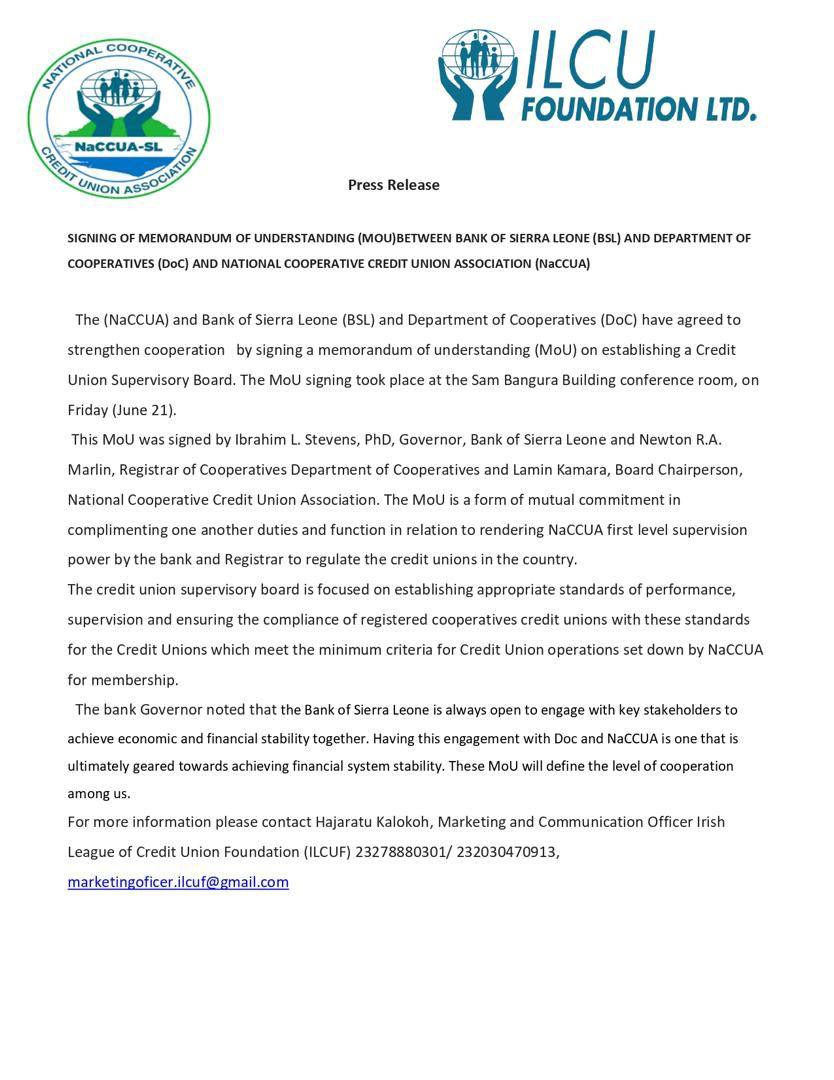Towards enhancing the regulatory framework and operational stability of cooperative credit unions in Sierra Leone, a Memorandum of Understanding (MoU) has been signed between the Bank of Sierra Leone (BSL), the Department of Cooperatives (DoC), and the National Cooperative Credit Union Association (NaCCUA). The signing ceremony took place on June 21 at the Sam Bangura Building conference room.
This MoU represents a collaborative effort among key financial and cooperative institutions aimed at bolstering the supervision and regulation of credit unions across the country. The agreement was signed by Dr. Ibrahim L. Stevens, Governor of the Bank of Sierra Leone; Newton R.A. Marlin, Registrar of Cooperatives, Department of Cooperatives; and Lamin Kamara, Board Chairperson of NaCCUA.
The MoU outlines a framework for the creation of a Credit Union Supervisory Board, tasked with establishing and enforcing performance, supervision, and compliance standards for registered cooperative credit unions. This board will work to ensure that these credit unions meet the minimum criteria for operations as set forth by NaCCUA, providing first-level supervision to guarantee their adherence to regulatory standards.
The Governor of the Bank of Sierra Leone, Dr. Stevens, emphasized the importance of this agreement in fostering economic and financial stability in the nation. “The Bank of Sierra Leone is committed to engaging with key stakeholders to achieve economic and financial stability together. This engagement with the Department of Cooperatives and NaCCUA is a crucial step towards achieving a robust financial system,” he stated.
Lamin Kamara, representing NaCCUA, expressed optimism about the MoU’s impact on the cooperative credit union sector. “This memorandum signifies our dedication to enhancing the supervisory capabilities and operational standards of credit unions in Sierra Leone. It is a testament to our mutual commitment to financial stability and growth,” Kamara said.
Newton R.A. Marlin, from the Department of Cooperatives, highlighted the complementary roles of the involved institutions. “By collaborating through this MoU, we can leverage our collective strengths to ensure that credit unions operate efficiently and within the regulatory framework, thereby protecting the interests of their members,” Marlin remarked.
The establishment of the Credit Union Supervisory Board is expected to provide a structured approach to monitoring and regulating credit unions, ensuring they operate under uniform standards and contribute positively to the financial ecosystem.












